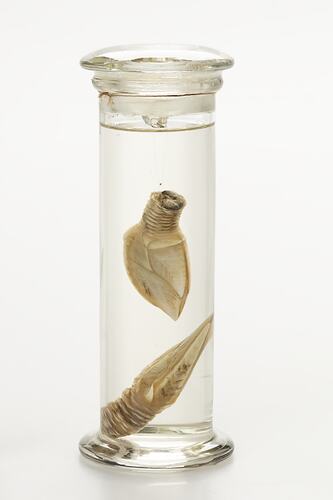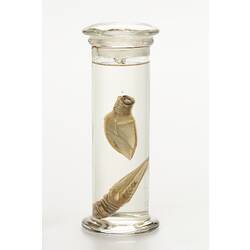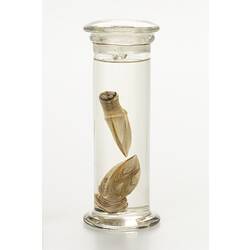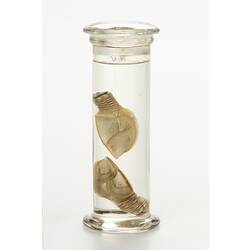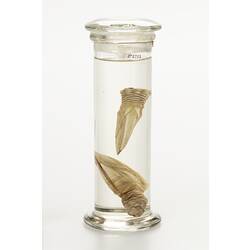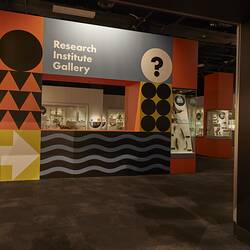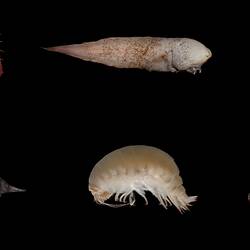Summary
These gooseneck (or goose) barnacles were collected from the Hunter Marine Park (formerly Commonwealth Marine Reserve) off NSW at ~2500 metres deep during the 2017 'Sampling the Abyss' voyage. One of their alternative common names - 'goose barnacle' - came from a misconception during the Middle Ages that they may in fact be goose eggs. These barnacles may look like shells, but they are actually more closely related to crabs. They are filter-feeders and will open their plates to extend leg-like cirri to feed from the water column. They are often found attached to other animals or seaweed, presumably to get a 'better perch' for feeding or to aid with dispersal. On this voyage they were seen attached to sea spiders, glass sponge spicules, rocks and even rubbish.
Specimen Details
-
Taxon Name
-
Author and date of publication
Pilsbry, 1907
-
Preferred Common name
Gooseneck Barnacle
-
Number Of Specimens
2
-
Specimen Nature
Nature: Whole, Form: wet, Fixative treatment: ethanol 95%, Medium: ethanol 70%
-
Expedition Name
-
Collected By
O'Hara et. al IN2017 V03 abyss Marine Invertebrates Team
-
Collection Event Code
IN2017 V03 070
-
Sampling Method
Beam Trawl - CSIRO Four Metre
-
Date Visited From
3/06/2017 4:22 PM
-
Date Visited To
3/06/2017 5:34 PM
-
Depth To (m)
2474
-
Depth From (m)
2595
-
Category
-
Scientific Group
-
Discipline
-
Collecting Areas
-
Type of Item
Taxonomy
-
Phylum
-
Subphylum
-
Class
-
Subclass
-
Superorder
-
Order
-
Family
Geospatial Information
-
Site Code
IN2017 V03 070
-
Country
-
State
-
Precise Location
Hunter CMR
-
Latitude
-32.575
-
Longitude
153.162
-
Geodetic Datum
WGS84
-
Georeference Protocol
data provided with specimen(s)
-
Georeference By
Dr Tim D O'Hara - Museum Victoria
